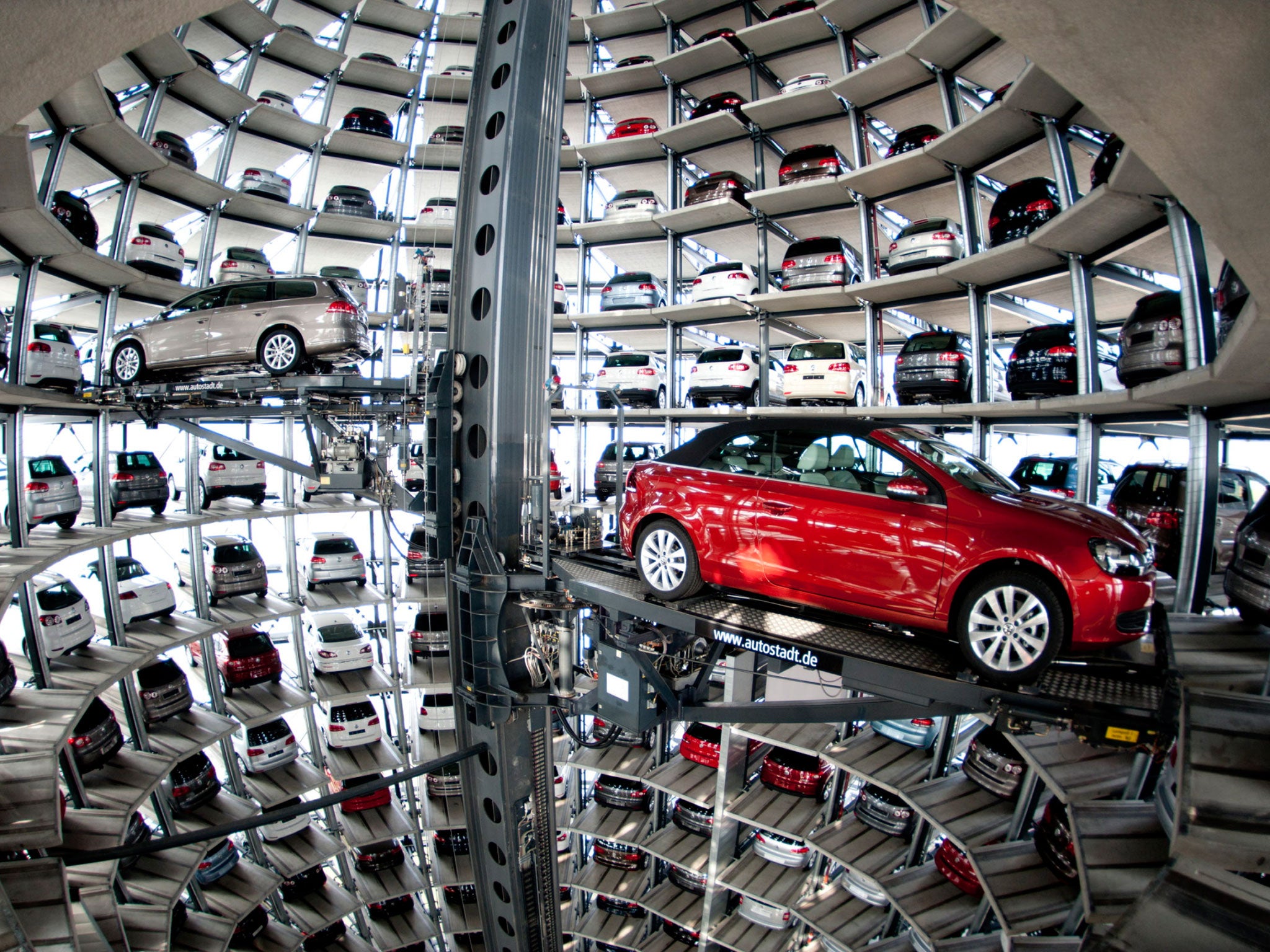Crimes of emission: If VW has been gaming the system to cheat the regulators, how many other corporate scams are out there?
The last thing the corporate world needs is further evidence of profit coming before the lowest of environmental hurdles

Your support helps us to tell the story
From reproductive rights to climate change to Big Tech, The Independent is on the ground when the story is developing. Whether it's investigating the financials of Elon Musk's pro-Trump PAC or producing our latest documentary, 'The A Word', which shines a light on the American women fighting for reproductive rights, we know how important it is to parse out the facts from the messaging.
At such a critical moment in US history, we need reporters on the ground. Your donation allows us to keep sending journalists to speak to both sides of the story.
The Independent is trusted by Americans across the entire political spectrum. And unlike many other quality news outlets, we choose not to lock Americans out of our reporting and analysis with paywalls. We believe quality journalism should be available to everyone, paid for by those who can afford it.
Your support makes all the difference.The emissions test scandal at Volkswagen is not simply bad for one of the world’s more successful car companies. It has, understandably, led many to wonder if other auto giants have engineered their cars to give misleading test data – and how widespread this sort of “gaming the system” is across the corporate sector.
The suspicion is that it is indeed commonplace. For some years now independent motoring journalists have noticed that the “official” figures for fuel economy and carbon dioxide emissions (two sides to the same coin, of course) bore little resemblance to real world experience. The suspicion – no one was in a position to prove anything – was that the manufacturers had somehow designed their cars’ powertrains to optimise their performance in a series of artificial tests, rather than to yield any particular savings for consumers. Thanks to the American authorities we know that, in the case of VW Group, something of that sort had indeed occurred, though the level of managerial connivance is yet to be determined. Common sense suggests that VW is unlikely to be driving solo down this particular road.
What the company has done – in its American factories – involves putting its considerable engineering prowess to ill use. The engine management systems of 11 million cars had a clever little piece of coding that would detect when the vehicle was travelling at a certain constant speed for a certain amount of time. Such constant speeds are mandated by the testing authorities, but would be almost impossible on the road. When a constant speed was detected, the car would be told by its on-board computer to switch all the anti-pollution devices on, so giving a much cleaner reading for exhaust emissions than would actually occur in the real world. So many VWs are much dirtier than they are made out to be.
There are ways to make such cheating harder in future, and they should be made standard forthwith. From 2017, European regulators will require cars to be tested on the road as well as in the laboratory. Currently, the software used by American carmakers is protected by the Digital Millennium Copyright Act, so researchers and testers cannot access it. Had they been able to, the scam might have been spotted sooner.
But what galls the most about the scam is the revelation of quite how little VW cared for the environment. And when such behaviour is observed in the automotive industry, it is likely to be found in other industries where environmental concerns should be paramount. This is the point, even more important than fairness to customers and road safety – the scale of corporate irresponsibility in the supposedly ethically advanced West. We are already aware of the widespread abuse of the EU’s carbon trading system, where various scams may have actually made CO2 targets harder to meet. And abuse like this does not fill one with hope about the fate of the planet, ahead of December’s vital climate change conference in Paris.
When confidence in big business has been eroded by tax avoidance and the scandal of poverty pay, this is the last thing the corporate world needs – further evidence that many are prepared to put profit before the lowest of environmental hurdles. If companies want to play a cat-and-mouse game with regulators over emissions trading or testing, then they can try, but they should also know that the regulators – acting on behalf of a concerned public and cheated consumers – will never let up in this struggle. The first casualty of this scandal will be VW’s reputation: stocks are dropping past the 40 per cent mark. If only everything in life were as reliable as a Volkswagen is supposed to be.
Join our commenting forum
Join thought-provoking conversations, follow other Independent readers and see their replies
Comments